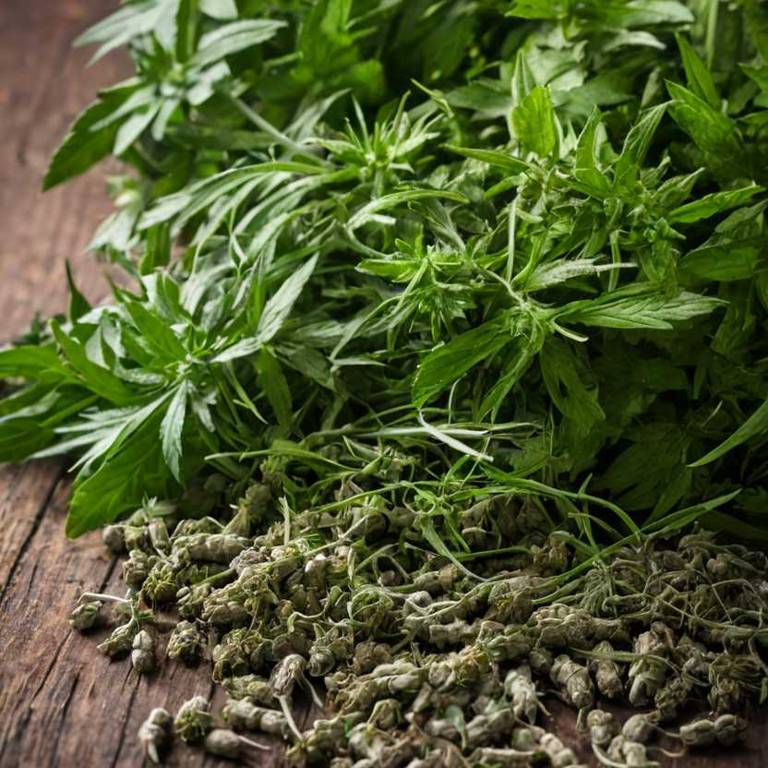By Leen Randell
Updated: Jul 06, 2024
What Are The Medicinal Properties Of Coptis Chinensis (Goldthread)?

Coptis chinensis, also known as goldthread, has health benefits such as treating fever, rheumatism, and diarrhea.
It contains berberine, a compound with antimicrobial and anti-inflammatory properties, as well as coptisine and jatrorrhizine. The herb is often prepared as a decoction or dried extract. Side effects may include gastrointestinal upset and allergic reactions.
Precautions include consulting a healthcare professional before use, especially for pregnant or breastfeeding women, and monitoring blood sugar levels in diabetics.
This article explains the health benefits, active constituents, medicinal preparations, possible side effects, and precautions related to Coptis chinensis.
What are the health benefits of Coptis chinensis?
Coptis chinensis, also known as goldthread, has health benefits such as anti-inflammatory, antioxidant, and antimicrobial properties.
The plant contains berberine, a bioactive compound that has been shown to exhibit antibacterial and antiviral effects, helping to prevent infections.
It is also used to lower cholesterol levels, manage diabetes, and alleviate symptoms of digestive disorders, making it a natural remedy for various health conditions.
Here's a detailed article about the 10 health benefits of Coptis chinensis.
What are the active constituents of Coptis chinensis?
Coptis chinensis, also known as goldthread, has active constituents such as berberine, coptisine, and palmatine, which are responsible for its medicinal properties.
These alkaloids have been shown to exhibit antibacterial, anti-inflammatory, and antiviral effects, making it a valued herb in traditional Chinese medicine.
Additionally, Coptis chinensis contains other compounds like ophiopogonin and tectorigenin, which may contribute to its therapeutic benefits.
Here's a detailed article about the 10 active constituents of Coptis chinensis.
What are the medicinal preparations of Coptis chinensis?
Coptis chinensis, also known as goldthread, has medicinal preparations such as tablets, capsules, and liquid extracts.
These preparations are often standardized to contain specific amounts of berberine, a key active compound responsible for the plant's pharmacological effects.
The extracts are used to treat various conditions, including gastrointestinal disorders, fever, and as an antimicrobial agent to combat infections.
Here's a detailed article about the 10 medicinal preparations of Coptis chinensis.
What are the possible side effect of using Coptis chinensis improperly?
Improper use of Coptis chinensis, also known as goldthread, increases the chances of experiencing side effects such as gastrointestinal upset, including nausea, vomiting, and diarrhea.
High doses may also cause liver damage, while prolonged use can lead to kidney problems.
Additionally, Coptis chinensis may interact with certain medications, including blood thinners, and exacerbate conditions such as high blood pressure and diabetes.
Here's a detailed article about the 10 most common side effects of Coptis chinensis.
What precautions to take when using Coptis chinensis medicinally?
Before using Coptis chinensis, also known as goldthread, for medicinal purposes, you must take precautions such as consulting with a qualified healthcare professional to determine the appropriate dosage and treatment duration.
Additionally, inform your practitioner of any pre-existing medical conditions, allergies, or medications being taken, as goldthread may interact with certain substances or exacerbate certain conditions.
Proper storage and handling of goldthread are also essential to preserve its potency.
Here's a detailed article about 10 precautions to take when using Coptis chinensis.